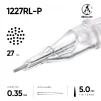Recognition of Prior Learning for Skilled Trades, Engineering, and Professional Growth
0 Views

Recognition of prior learning (RPL) provides an opportunity for professionals and tradespeople to gain formal certification based on the skills and experience they have accumulated in their careers. Certificate iii in air conditioning and refrigeration rpl is designed for technicians who have hands-on experience in HVAC and refrigeration but have not yet completed formal training. Cert 3 air con rpl offers a structured pathway to achieve recognized certification, enhancing professional credibility and career prospects.
Certificate III in Air Conditioning and Refrigeration
Certificate iii in air con rpl evaluates practical skills in installing, servicing, and maintaining air conditioning and refrigeration systems. Air con rpl programs ensure that technicians meet national competency standards while recognizing their practical experience. HVAC rpl focuses on heating, ventilation, and air conditioning systems, and refrigeration rpl validates expertise in domestic and commercial refrigeration units. Uee32220 rpl is the nationally recognized code for this qualification, ensuring certified professionals are recognized across industries.
Carpentry and Fabrication RPL
RPL is not limited to HVAC and refrigeration. Carpentry rpl provides a pathway for skilled carpenters to gain formal recognition of their practical experience. Cert 3 carpentry rpl assesses competencies such as construction techniques, woodworking, and safe tool handling. Fabrication rpl programs validate skills in metalworking, welding, and structural assembly, giving tradespeople recognized qualifications that enhance career opportunities without repeating previously acquired training.
Engineering and Mechanical Trades RPL
Certificate iii in engineering mechanical rpl is designed for professionals in mechanical trades who want to formalize their experience. Mechanical trade rpl assesses competencies including machinery operation, maintenance, and technical drawing interpretation. Certificate iii in engineering fabrication rpl evaluates fabrication and assembly skills. Certificate 3 engineering rpl provides broader recognition across various engineering disciplines. Skills certified engineering programs ensure professionals in construction, manufacturing, and industrial sectors meet industry standards. Heavy mechanic rpl provides recognition for maintaining and repairing heavy machinery efficiently and safely.
Diesel fitter rpl programs certify professionals experienced in diesel engines, including diagnostics, repair, and maintenance. Mobile plant rpl and cert 3 mobile plant rpl recognize skills in operating and maintaining machinery such as cranes, loaders, and excavators. These qualifications formalize practical experience while ensuring adherence to safety standards.
Building, Culinary, and Kitchen Management RPL
Certificate iv in building rpl recognizes the skills of builders and construction supervisors in project management, safety compliance, and workforce coordination. Certificate iv in commercial cookery rpl and certificate iv in kitchen management rpl provide recognition for chefs and kitchen managers with practical experience in commercial kitchens. Chef rpl programs evaluate cooking skills, while chef qualification rpl ensures that professionals meet industry standards and are prepared for career advancement.
Business and Leadership RPL
RPL also supports business professionals. Business course rpl programs recognize skills gained through work experience in administration, planning, and operations. Diploma of leadership and management rpl, diploma leadership rpl, and diploma management rpl formalize leadership, strategic planning, and organizational management skills. BSB50420 rpl corresponds with the Diploma of Leadership and Management, allowing professionals to achieve formal recognition based on prior experience rather than completing an entire course.
Benefits of Recognition of Prior Learning
RPL provides numerous benefits. Candidates save time and reduce costs by having their existing skills recognized. It allows faster access to promotions, higher-level positions, and increased earning potential. Employers benefit from a qualified workforce that meets national standards, reducing training costs and ensuring competency. RPL also helps individuals identify areas for skill improvement and engage in targeted professional development.
The RPL Assessment Process
The RPL process involves documenting work experience, submitting evidence, and completing competency assessments. Evidence may include portfolios, photographs of completed projects, work logs, and references from supervisors. Assessors evaluate this evidence against national competency standards. For cert 3 air con rpl, candidates can provide installation records, maintenance reports, and service logs. Carpentry rpl candidates may submit images of projects and job sheets. Engineering, fabrication, and mechanical trades rely on similar documentation to validate practical skills and knowledge.
Flexible Learning and Assessment
RPL programs provide flexible assessment methods, combining practical demonstrations with theoretical evaluation. Candidates can complete assessments at their own pace, making it ideal for professionals balancing work or personal commitments. This flexibility allows candidates to gain formal recognition efficiently while continuing to work.
Career Advancement Through RPL
RPL supports career growth in various industries. In engineering, mechanical, fabrication, and heavy machinery trades, RPL ensures professionals meet competency standards and can take on advanced responsibilities. In building, commercial cookery, and kitchen management, RPL enables promotion to supervisory and managerial positions. Business professionals can formalize leadership and management experience, creating opportunities for senior roles.
Continuous Professional Development
RPL encourages ongoing learning and skill enhancement. By identifying skill gaps, candidates can pursue targeted training to remain current with industry standards and best practices. Continuous professional development ensures individuals remain competitive and capable of delivering high-quality results.
Conclusion
Recognition of prior learning is a practical pathway for skilled tradespeople, engineers, chefs, and business professionals to gain formal qualifications. Certificate iii in air conditioning and refrigeration rpl, cert 3 air con rpl, HVAC rpl, carpentry rpl, fabrication rpl, certificate iv in building rpl, chef rpl, and diploma leadership rpl are examples of programs that recognize skills across a variety of industries. RPL saves time, reduces costs, provides flexible learning, and enhances career prospects while ensuring compliance with national competency standards.
Through RPL, professionals can formalize their skills, gain industry-recognized qualifications, and unlock new career opportunities. Certificate iii in air conditioning and refrigeration rpl, cert 3 carpentry rpl, refrigeration rpl, skills certified engineering, diesel fitter rpl, certificate iv in commercial cookery rpl, chef qualification rpl, and BSB50420 rpl demonstrate how RPL supports career advancement, professional recognition, and long-term success. By acknowledging prior learning, individuals can achieve formal qualifications, increase employability, and advance in their chosen fields.
- TAGS :




















